In the competitive world of real estate, is your pipeline of high-quality leads a reliable asset or a constant source of stress? Without a predictable stream of prospects, agents are often stuck in a cycle of feast or famine, making sustainable growth feel impossible. The challenge is that the methods for capturing buyer and seller attention are constantly evolving. What worked last year might not deliver the same return on investment today.
This article cuts through the noise to deliver a consultative guide on effective lead generation for real estate agents. We’ll move beyond generic advice to give you a detailed blueprint for each method, complete with actionable steps and real-world examples.
From mastering local SEO and content marketing to leveraging paid advertising and referral programs, this guide covers the essential channels for success. Whether you're a seasoned pro looking to refine your approach or a new agent building from the ground up, these insights will equip you with the strategies needed to build a robust and reliable lead generation engine. You will learn precisely how to implement each tactic to keep your pipeline full and your business thriving.
1. Mastering the Digital Foundation: Content Marketing & Local SEO
Effective lead generation for real estate agents begins with a robust digital presence, and content marketing combined with local SEO is the bedrock of that foundation. This strategy involves creating and distributing valuable, relevant content such as blog posts, market reports, and video tours. The goal is to attract and engage a clearly defined audience—specifically potential buyers and sellers actively searching for information online.
Unlike paid ads that stop working when you stop paying, this approach builds a long-term, lead-generating asset for your business. By consistently publishing content that answers your clients' most pressing questions, you establish authority, build trust, and capture organic search traffic from platforms like Google. For instance, a local realtor in Boca Raton might create a detailed blog post on the "Top 5 Family-Friendly Neighborhoods in Boca," attracting qualified buyers directly to their website.
Why This Method Works
Content marketing is powerful because it aligns with modern consumer behavior. Today’s buyers and sellers are researchers. They turn to search engines to find information on home values, neighborhood amenities, and the selling process long before they are ready to contact an agent. By providing the answers they seek, you position yourself as the go-to expert in your market.
Key Insight: This strategy isn't about immediate transactions; it's about building a sustainable pipeline. You are capturing prospects at the top of the sales funnel and nurturing them with valuable information until they are ready to act.
Actionable Implementation Steps
- Focus on Hyperlocal Keywords: Optimize your content for terms potential clients are actually using. Instead of "homes for sale," target long-tail keywords like "three-bedroom homes for sale in Miami's Coconut Grove" or "best school districts in North Dallas."
- Leverage Your Google Business Profile: Treat your GBP as a mini-website. Regularly add high-quality photos of listings, post updates about market trends, and promptly answer questions in the Q&A section to boost your visibility in local map searches.
- Embed Clear Calls-to-Action (CTAs): Every piece of content should guide the reader to the next step. Include prominent CTAs like "Download Our Free Seller's Guide" or "Schedule a No-Obligation Home Valuation" to convert readers into leads.
2. Social Media Marketing: Building Relationships & Driving Engagement
Social media marketing has evolved from a simple networking tool into a powerhouse for lead generation for real estate agents. This strategy involves leveraging platforms like Facebook, Instagram, LinkedIn, and even TikTok to showcase properties, share market insights, and build authentic relationships with potential clients. It’s a dynamic blend of organic content creation and highly targeted paid advertising, allowing agents to reach specific demographics with precision.

Unlike more formal marketing channels, social media provides a unique opportunity to showcase your personality and humanize your brand. By consistently sharing high-quality property tours, behind-the-scenes content, and valuable advice, you can create a community of engaged followers who will turn to you when they are ready to transact.
Why This Method Works
Social media excels at capturing attention and nurturing leads in a low-pressure environment. It allows you to stay top-of-mind with your sphere of influence and reach new audiences through targeted ads and shareable content. Buyers and sellers often use these platforms for inspiration and to vet potential agents, looking for signs of expertise, professionalism, and relatability. By actively engaging and providing value, you build the social proof needed to win their trust and business.
Key Insight: The goal of social media is not just to broadcast listings; it's to build a community. Engage in conversations, answer questions, and celebrate your clients' successes to create a loyal following that generates referrals and repeat business.
Actionable Implementation Steps
- Create Platform-Specific Content: Tailor your content to each platform. Use high-quality, visually stunning photos and Reels on Instagram, share market updates and professional insights on LinkedIn, and create engaging community discussions in a local Facebook group.
- Run Targeted Ad Campaigns: Leverage Facebook and Instagram's powerful ad-targeting tools. Create campaigns to promote a specific listing to users in a certain zip code or target potential sellers with ads offering a free home valuation.
- Use Live Video and Stories: Go beyond static posts. Use Instagram Stories for daily updates, Q&A sessions, and quick property sneak peeks. Utilize Facebook Live to host virtual open houses or interview a local mortgage lender, providing immediate value and engagement.
3. Email Marketing Campaigns
Where other strategies focus on attracting new prospects, email marketing excels at nurturing existing ones. This method involves building and maintaining a segmented email list to deliver timely, valuable content directly to potential clients. It is a cornerstone of long-term lead generation for real estate agents, transforming cold contacts into warm, transaction-ready leads by consistently staying top-of-mind.
Unlike social media where algorithms dictate visibility, email provides a direct line of communication to your audience. Through automated campaigns, personalized property alerts, and monthly market reports, you can build a relationship founded on expertise and trust. For example, a monthly newsletter detailing market trends in specific zip codes reinforces your authority and keeps you relevant to homeowners who may be months away from selling.

Why This Method Works
Email marketing is effective because it is personal, scalable, and cost-efficient. It allows you to segment your audience based on their needs—such as first-time homebuyers, potential sellers, or investors—and send them highly relevant information. This level of personalization fosters a stronger connection and moves prospects through the sales funnel more effectively than generic, one-size-fits-all messaging.
Key Insight: The power of email is in the follow-up. Most leads are not ready to transact immediately. Consistent, valuable email contact ensures that when they are ready to buy or sell, you are the first agent they think of.
Actionable Implementation Steps
- Create Compelling Lead Magnets: Build your email list by offering valuable resources in exchange for an email address. This could be a "Home Seller's Checklist," a "Buyer's Guide to Navigating a Competitive Market," or a hyperlocal market report.
- Segment Your Audience for Personalization: Don't send the same email to everyone. Use your CRM or email platform like Mailchimp or HubSpot to create segments for buyers, sellers, past clients, and cold leads, then tailor your content for each group.
- Automate Nurture Sequences: Set up automated email "drip" campaigns for new leads. A typical sequence might include a welcome email, an introduction to your services, a valuable piece of content, and a client testimonial, all sent over a period of several weeks.
- Include Clear Calls-to-Action (CTAs): Every email must have a purpose. Guide your subscribers toward the next step with clear CTAs like "See This Week's Newest Listings," "Request a Free Home Valuation," or "Book a 15-Minute Consultation."
4. Building a Pipeline with Purposeful Referral Programs
A systematic referral program is one of the most powerful and sustainable methods for lead generation for real estate agents. This strategy moves beyond passively hoping for word-of-mouth recommendations and instead creates a structured process for generating high-quality leads from satisfied past clients, professional partners, and your wider network. It's about proactively cultivating relationships that consistently yield new business.
By formalizing your approach, you transform referrals from a happy accident into a reliable pillar of your business. This is because referred leads come with a built-in layer of trust, leading to higher conversion rates and smoother transactions.

Why This Method Works
Referral programs are effective because they leverage the ultimate form of social proof: a personal recommendation from a trusted source. According to the National Association of Realtors, referrals remain a top source of business for agents. When a friend or colleague recommends an agent, that endorsement cuts through the marketing noise and immediately establishes credibility. These leads are often more loyal, less price-sensitive, and more likely to refer others in turn, creating a virtuous cycle of growth.
Key Insight: This isn't just about asking for business; it's about delivering an exceptional experience worth sharing and then making it easy for people to do so. A successful program is a direct reflection of your service quality.
Actionable Implementation Steps
- Formalize Your Program & Incentives: Don't leave it to chance. Create a clear program outlining how it works. Offer a tiered-reward system, such as a high-quality gift card for a successful referral, and communicate it clearly to your past client base.
- Nurture Your Network Proactively: Stay top-of-mind with past clients through a consistent communication plan that provides value, like sending quarterly market updates or annual home-anniversary gifts. Build reciprocal relationships with mortgage brokers, home inspectors, and local attorneys.
- Time Your 'Ask' Perfectly: The best moments to ask for a referral are when your value is most apparent, such as immediately after a successful closing or when delivering particularly good news during the transaction. Frame it as an invitation to help their friends and family achieve similar success.
5. Open Houses and Events
In an increasingly digital world, the power of face-to-face interaction remains a potent tool for lead generation for real estate agents. Hosting well-executed open houses and community events bridges the gap between online browsing and in-person connection. This traditional strategy allows agents to showcase a property's best features while simultaneously meeting dozens of potential buyers and sellers in a single afternoon.
More than just unlocking a door, this method transforms a property into a networking hub. By creating a welcoming and informative environment, you can capture high-intent leads who are actively exploring the market. A well-planned event, like a "first-time homebuyer seminar" hosted at a local library or a themed open house, can generate immediate opportunities and solidify your reputation as a proactive community expert.
Why This Method Works
Open houses and events capitalize on immediacy and intent. Attendees are not passive scrollers; they are motivated individuals who have dedicated their time to physically visit a property or attend a seminar. This self-qualification process means you are engaging with a highly relevant audience. You get to build rapport, answer specific questions, and demonstrate your market knowledge in a tangible, memorable way that a digital ad cannot replicate.
Key Insight: This strategy is about creating an experience, not just a viewing. By adding value, whether through expert insights at a seminar or a beautifully staged open house, you move from being a "gatekeeper" of a property to a trusted resource and advisor.
Actionable Implementation Steps
- Implement a Digital Sign-In System: Ditch the paper sign-in sheet. Use a tablet with a digital form (like Open Home Pro or a simple Google Form) to capture names, emails, and phone numbers cleanly. This ensures data is accurate and can be imported directly into your CRM for immediate follow-up.
- Partner with Local Businesses: Enhance your event's appeal by collaborating with local businesses. Co-host with a mortgage lender who can offer on-site pre-qualification, a local coffee shop to provide refreshments, or a home stager to discuss design tips. This adds value for attendees and cross-promotes your network.
- Systemize Your Follow-Up: Prepare your follow-up sequence before the event. All attendees should receive a personalized email or text within 24 hours thanking them for coming. Segment your list based on their interest level (e.g., "just looking" vs. "ready to buy") and place them into appropriate nurture campaigns.
6. Paid Advertising (Google Ads & Facebook Ads)
While organic strategies build long-term assets, lead generation for real estate agents often requires immediate and predictable results. This is where paid advertising excels, allowing you to place your brand directly in front of high-intent buyers and sellers on platforms like Google and Meta. This strategy bypasses the slow build of SEO, offering instant visibility to a highly targeted audience.
Paid advertising works by bidding on keywords (Google Ads) or targeting specific demographics and behaviors (Meta Ads). For instance, an agent can run a Google Ad that appears when someone searches "sell my house fast in San Diego." Simultaneously, they could launch a Facebook campaign targeting users who recently engaged with real estate content or visited sites like Zillow. This two-pronged approach captures both active searchers and passive prospects, maximizing lead flow.
Why This Method Works
Paid advertising is effective because it is precise, scalable, and fast. You can micro-target your ideal clients based on location, income, life events (like getting married or having a child), and online behavior. This ensures your marketing budget is spent efficiently, reaching people who are most likely to convert. Unlike waiting for organic traction, a well-optimized ad campaign can start generating leads within hours of launching.
Key Insight: Paid advertising is like turning on a faucet for leads. It provides control and predictability, allowing you to ramp up or scale down your efforts based on market conditions, inventory, and business goals.
Actionable Implementation Steps
- Create Compelling Landing Pages: Do not send ad traffic to your generic homepage. Design dedicated landing pages with a single, clear call-to-action, such as "Get Your Free Home Valuation" or "Download Our First-Time Buyer's Guide," to maximize conversion rates.
- Utilize Retargeting Pixels: Install the Meta Pixel and Google Ads tag on your website immediately. This allows you to "retarget" visitors who viewed a specific listing or read a blog post, showing them relevant ads as they browse other sites and social media, keeping you top of mind.
- Start Small and Test: Allocate a modest initial budget to test different ad creatives, headlines, and audience segments. Track metrics like Cost Per Lead (CPL) and Click-Through Rate (CTR) to identify winning combinations before scaling your ad spend.
7. Local Community Involvement
While digital strategies are crucial, authentic lead generation for real estate agents is often supercharged by grassroots community engagement. This approach centers on building genuine relationships and establishing yourself as a trusted, visible member of your local community. It moves beyond pure sales and positions you as a neighbor and a dedicated local expert.
This high-touch, hyper-local method involves active participation in community events, sponsorships, and civic activities. Instead of just advertising, you become part of the community fabric. For example, sponsoring a little league team or hosting a free homebuyer seminar at the local library creates natural networking opportunities and builds goodwill, which translates directly into referral business and inbound leads.
Why This Method Works
Real estate is an inherently local and relationship-driven business. Community involvement works because it builds social proof and trust in a way that digital ads cannot replicate. When potential clients see you volunteering at a charity event or see your name on a local park bench, it creates a powerful, positive association. You are no longer just an agent; you are the "neighborhood agent."
Key Insight: This strategy is about playing the long game. The leads generated are often highly qualified because they come from a place of established trust and familiarity, not a cold search query.
Actionable Implementation Steps
- Sponsor Hyper-Locally: Move beyond generic sponsorships. Instead of a broad city event, sponsor a specific neighborhood block party, a school fun run, or a local farmers' market stall. This targets your farm area directly.
- Host Educational Workshops: Partner with local libraries, community centers, or coffee shops to host free workshops on topics like "First-Time Home Buying 101" or "How to Prepare Your Home for the Spring Market." This provides direct value and captures leads.
- Join a Local Board or Civic Group: Actively participating in a local business association, charity board, or neighborhood improvement committee places you at the center of community influence and provides unparalleled networking opportunities with local leaders.
8. Video Marketing and Virtual Tours
In today’s visually-driven market, incorporating video is a non-negotiable strategy for effective lead generation for real estate agents. This method involves creating dynamic video content to showcase properties, share crucial market insights, and build a powerful personal brand. From polished property tours to quick, educational social media clips, video leverages the power of visual storytelling to engage potential clients on a deeper level.
Unlike static photos, video allows you to convey emotion, showcase a property's flow, and demonstrate your expertise in real-time. By offering immersive experiences like virtual tours or creating a YouTube channel dedicated to local market trends, you capture the attention of buyers and sellers looking for more than just a listing.
Why This Method Works
Video marketing is exceptionally effective because it captures and holds attention far better than text or images alone. It allows you to build a personal connection with viewers, fostering trust and familiarity before you ever meet in person. For buyers, virtual tours provide an unparalleled level of detail and convenience, while for sellers, a high-quality video marketing plan demonstrates a premium service offering that can attract serious offers.
Key Insight: Video content serves as a digital handshake. It’s your opportunity to showcase not just the property, but also your personality, professionalism, and unique value proposition, building a brand that attracts clients.
Actionable Implementation Steps
- Invest in Quality Audio and Lighting: You don't need a Hollywood budget, but clear audio and good lighting are essential. A good microphone and a simple ring light can dramatically elevate the quality of your videos and make your content appear more professional.
- Create a Consistent Content Schedule: Treat your video channel like a TV show. Whether you post a new listing tour every Friday or a market update on the first of the month, consistency keeps your audience engaged and signals to platform algorithms that your channel is active.
- Optimize for Each Platform: A 10-minute YouTube property tour won't work as an Instagram Reel. Edit and format your videos specifically for each platform, using vertical video for mobile-first apps like TikTok and Instagram and horizontal for YouTube.
- Use Strategic Thumbnails and Titles: Your video's thumbnail and title are the "curb appeal" that convinces someone to click. Create compelling, high-contrast thumbnails and write keyword-rich, attention-grabbing titles like "5 Things to Know Before Moving to Austin, TX" to maximize views.
Lead Generation Strategies Comparison
| Strategy | Implementation Complexity 🔄 | Resource Requirements ⚡ | Expected Outcomes 📊 | Ideal Use Cases 💡 | Key Advantages ⭐ |
|---|---|---|---|---|---|
| Content Marketing & SEO | Medium – requires SEO skills & consistency | Medium – content creation & SEO tools | Long-term organic traffic and lead growth | Building authority, attracting local buyers | Builds trust, cost-effective, passive leads |
| Social Media Marketing | High – daily management across platforms | Medium to High – quality visuals & engagement | Medium-term engagement and brand building | Visual showcasing, targeted demographics | Direct engagement, visual appeal, targeted ads |
| Email Marketing Campaigns | Medium – list building and automation setup | Low to Medium – email platform & content | High ROI and nurturing long-term leads | Lead nurturing and regular contact | Direct communication, automation, measurable |
| Referral Programs | Medium – relationship management needed | Low – mostly time and incentive costs | High-quality, well-converting leads | Leveraging existing clients and networks | High conversion, low cost per acquisition |
| Open Houses and Events | High – event planning and follow-up | Medium to High – event costs and time | Immediate leads with trust building | Face-to-face networking and property showcasing | Builds trust fast, multiple leads per event |
| Paid Advertising (Google & Meta Ads) | High – requires ongoing management & testing | High – ad spend and creative assets | Quick lead generation and immediate visibility | Targeted campaigns for immediate results | Fast results, highly targeted, measurable ROI |
| Local Community Involvement | High – long-term commitment and participation | Low to Medium – sponsorships & time | Slow lead generation but strong reputation | Building local trust and word-of-mouth referrals | Builds strong local reputation, authentic |
| Video Marketing & Virtual Tours | High – needs video production skills | Medium to High – equipment & editing | High engagement, strong personal connection | Showcasing properties and storytelling | High engagement, multiplatform use, professional |
Turning a Plan into a Pipeline: Your Next Steps
We have navigated the landscape of modern real estate lead generation, exploring eight powerful strategies that can transform your business. From building a long-term foundation with SEO-driven content marketing and fostering community through social media to capturing immediate interest with precisely targeted paid advertising, you now possess a comprehensive toolkit. You’ve seen how strategic email campaigns nurture relationships over time, while referral programs and local community involvement leverage the invaluable currency of trust. Meanwhile, immersive video marketing and well-executed open houses create tangible connections in an increasingly digital world.
The core lesson is not to attempt all eight methods simultaneously. The path to a predictable stream of clients is paved with focus and consistency. The most successful agents identify the one or two strategies that best align with their unique strengths, market dynamics, and available budget. They don't just dabble; they build robust, repeatable systems around their chosen channels. This systematic approach is the critical differentiator that elevates top producers, turning sporadic inquiries into a reliable, scalable pipeline of qualified prospects.
From Strategy to System: Your Actionable Blueprint
Mastering lead generation for real estate agents is less about discovering a single "secret" and more about committing to a process. Your next steps should be deliberate and methodical. Start by assessing your resources:
- Evaluate Your Strengths: Are you a natural networker perfect for community events, or are you a compelling writer ready to dominate local SEO?
- Analyze Your Market: Is your ideal client actively searching on Google, or are they more likely to be found scrolling through Facebook and Instagram in a specific demographic?
- Set a Realistic Budget: Determine what you can allocate in terms of both time and financial investment. Content marketing costs time, while paid ads require capital.
Once you have clarity, select your primary and secondary lead generation pillars. Dedicate the next 90 days to mastering them. Document your processes, track your key metrics (like cost per lead and conversion rate), and consistently refine your approach based on what the data tells you. This commitment to measurement and optimization is what separates a list of tactics from a high-performance lead generation engine.
Key Takeaway: Consistent, strategic action is the only true bridge between a struggling agent and a market leader. It's about moving from passively hoping for leads to actively building a system that attracts them to you, day in and day out. This shift in mindset and execution is the ultimate key to unlocking sustainable growth and long-term success in the competitive real estate industry.
Need help attracting quality real estate leads? The experts at DigitalAdvertisingDirect.com specialize in creating hyper-targeted paid advertising campaigns and seamless lead nurturing funnels for the real estate sector. Get a free strategy session with Digital Advertising Direct today and discover how our fully managed Meta and Google Ads solutions can fill your pipeline with motivated buyers and sellers.


